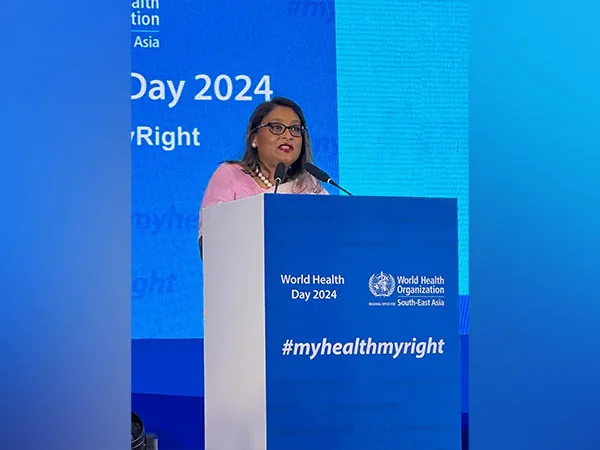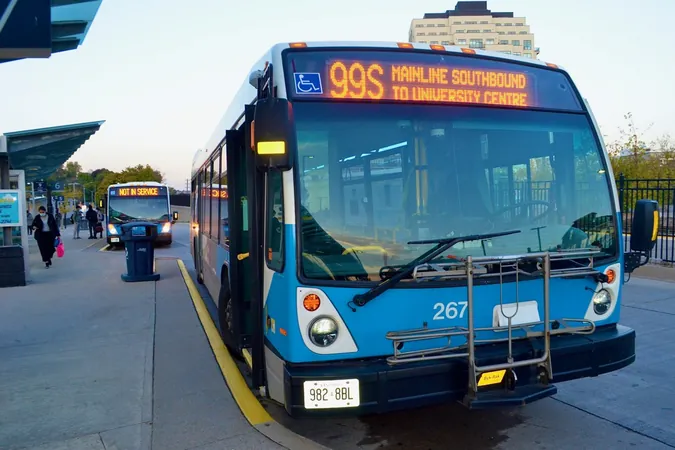
WHO Urges Worldwide Action Against HIV on World AIDS Day: A Call for Rights and Equity
2024-11-30
Author: Emma
WHO Urges Worldwide Action Against HIV on World AIDS Day: A Call for Rights and Equity
On December 1, as the world commemorated "World AIDS Day," the World Health Organization (WHO) Regional Director for Southeast Asia, Saima Wazed, passionately called for a renewed global commitment to combat HIV/AIDS under the theme "Take the Rights Path: My Health, My Right!" This year's theme powerfully underscores the necessity of providing accessible, rights-based healthcare to individuals living with HIV.
In her statement, Wazed emphasized that global leaders and citizens must confront the persistent inequalities hindering progress towards the Sustainable Development Goals, specifically the ambitious target to eliminate AIDS by 2030. She stressed that access to healthcare should be guaranteed for everyone living with HIV, free from stigma and discrimination.
“A rights-based approach is not merely a strategy; it embodies a resolute commitment to uphold the dignity, health, and autonomy of all individuals, particularly the most vulnerable,” Wazed asserted. “It is imperative that we confront the stigma and discrimination that block access to essential prevention, treatment, and care services.”
In the WHO South-East Asia Region, an estimated 3.9 million people live with HIV, constituting 10% of the global case load. Although there has been progress—78% of individuals are aware of their HIV status, and 66% are on antiretroviral treatment—significant challenges remain, particularly for marginalized communities, including men who have sex with men, sex workers, people who inject drugs, and transgender individuals, who face disproportionately higher HIV infection rates and barriers to care.
Among the most vulnerable are children and adolescents; approximately 80,000 individuals under the age of 19 are living with HIV in Southeast Asia, predominantly due to mother-to-child transmission. The WHO's 'triple elimination' initiative strives to eradicate vertical transmission of HIV, syphilis, and hepatitis B, with countries such as the Maldives, Sri Lanka, and Thailand achieving notable success.
Unfortunately, the incidence of new HIV infections among youth is alarming, with nearly 50% of new cases diagnosed in individuals aged 15 to 24. Identifying deficiencies in education concerning HIV transmission and prevention, WHO noted that fewer than 25% of young people in the region grasp how HIV spreads. As a positive step, Southeast Asian nations have adopted the Ministerial Declaration on Adolescent-Responsive Health Systems, aiming to build health frameworks better suited to address the needs of youth facing HIV challenges.
Technological innovations present a promising way to enhance HIV care accessibility. Mobile health applications, online counseling, and virtual support groups are revolutionizing service delivery for populations often stranded by traditional healthcare limitations. The WHO also highlighted critical biomedical advancements, such as pre-exposure prophylaxis (PrEP) and long-acting antiretroviral therapies, which serve as potent tools to mitigate HIV transmission.
Moreover, the WHO's focus remains steadfast on achieving the transformative '95-95-95' targets: diagnosing 95% of people living with HIV, ensuring 95% of those diagnosed receive treatment, and achieving viral suppression in 95% of those treated. WHO has called for ongoing collaboration between governments, healthcare providers, and international organizations to meet these ambitious goals.
As we reflect on World AIDS Day 2024, WHO reaffirmed its dedication to ensuring that every person living with HIV has access to the necessary healthcare and support to lead a healthy life. Wazed's rallying call for collective action aims to dismantle the barriers hindering access to HIV services and to advocate for the rights of everyone affected by HIV/AIDS, propelling us toward a future where health and dignity are rights guaranteed to all.









 Brasil (PT)
Brasil (PT)
 Canada (EN)
Canada (EN)
 Chile (ES)
Chile (ES)
 España (ES)
España (ES)
 France (FR)
France (FR)
 Hong Kong (EN)
Hong Kong (EN)
 Italia (IT)
Italia (IT)
 日本 (JA)
日本 (JA)
 Magyarország (HU)
Magyarország (HU)
 Norge (NO)
Norge (NO)
 Polska (PL)
Polska (PL)
 Schweiz (DE)
Schweiz (DE)
 Singapore (EN)
Singapore (EN)
 Sverige (SV)
Sverige (SV)
 Suomi (FI)
Suomi (FI)
 Türkiye (TR)
Türkiye (TR)